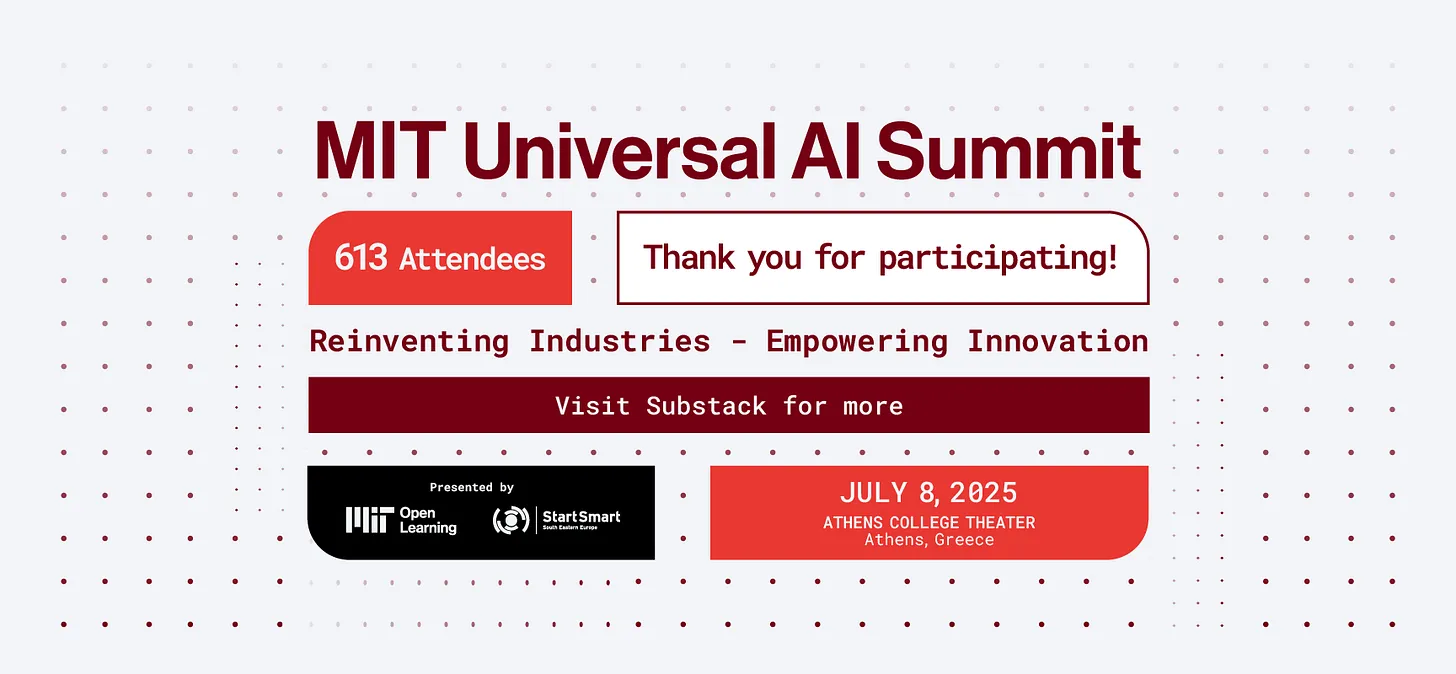
Athens Ignites: MIT’s Universal AI Summit 2025
One epic day where education, industry, and policy collided to preview MIT Open Learning’s Universal AI, and showed the world how to turn bold ideas into working pilots.
StartSmart SEE and MIT Open Learning designed the MIT Universal AI Summit to be more than a conference; it also previewed Universal AI, MIT Open Learning’s new learning experience that teaches foundational AI fluency through advanced, industry-specific applications. The brief was simple but audacious: bring the people who build AI, fund AI, regulate AI, and need AI into one hall, then show, in a single sprint, how learning, policy, and production can ignite together.
Just after the doors opened on July 8, 2025, over six hundred fifty badges were printed. The crowd we had curated was deliberately mixed: roughly two-fifths seasoned professionals, a quarter founders, the rest investors, academics, and a handful of policy-makers, exactly the ecosystem we hoped to convene.
🔑 3 Key Takeaways from Athens
AI is ready—are you?
From steel plants to defence protocols, the tech is here. What’s missing in most orgs is the culture and coordination to deploy it at scale.
Education is going universal.
The Universal AI curriculum is built for mass adoption, aligned to Open Learning’s goal to educate 1 billion learners. Training won’t be a bottleneck; excuses will be.
Pilots are dead—build to deploy.
Speakers and sponsors agreed: no more “POC trophies.” The future belongs to those who ship, iterate, and align AI to real KPIs fast.
Here’s how those takeaways came to life on stage.
What followed was a twelve-hour sprint of keynotes, candid panels, and rapid-fire pitches led by entrepreneurs, academics, and policymakers. Each brought a unique angle, but all pointed toward the same conclusion: AI is no longer on the horizon. It’s here, and the real work is building with it.
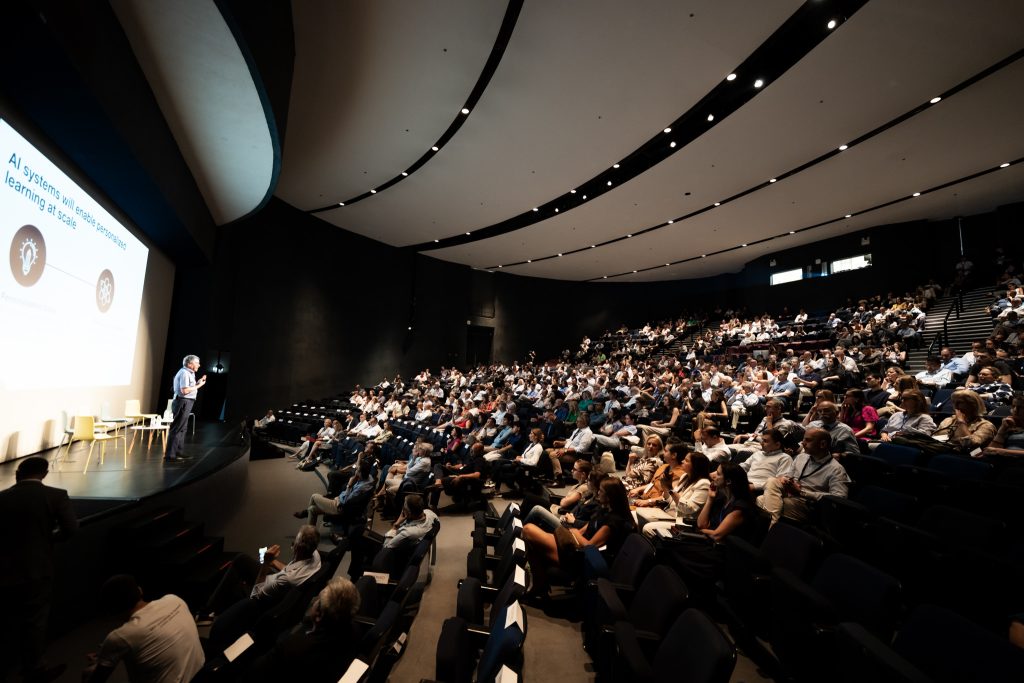
Universal AI & the Future of Education
Professor Dimitris Bertsimas, Vice Provost for Open Learning, opened with a bold claim: one billion people must be educated and empowered to solve the world’s biggest challenges – and AI can be the tool that superpowers our approach. He previewed the Universal AI curriculum and demonstrated how AI will be transformative in enabling truly personalized education. This included an example of a generated lecture that changed the example of a lesson on linear regression from wine-price prediction to planetary science, showing how future learning content can morph to any field or language in seconds based on learner comprehension and experience.
AI as a Productivity Multiplier: Real-World Business Impact
Professor Theodoros Evgeniou followed with a sharp reality check: the €20 trillion AI upside won’t go to those stuck in pilot mode. It will belong to regions bold enough to redesign entire systems—processes, roles, incentives—from the ground up. His 700-use-case slide wasn’t a wishlist; it was a call to outgrow experimentation and scale with intent.
Collaborative Innovation — the StartSmart Way
Kathleen Kennedy, alongside Bogy Skowronski and Vassilis Papakonstantinou, co-founders of StartSmart CEE and SEE, delivered a powerful call to action: real innovation happens when corporates and startups stop circling each other and start building together. They broke down the StartSmart formula, a framework that ditches vanity metrics and focuses on fast, focused collaboration that leads to actual pilots, not just pitch decks. Drawing from a decade of experience running innovation programs across Europe, they showed how curated pairings and shared accountability can unlock progress at startup speed. The message landed: forget the theater, it’s time for joint execution.
AI-Driven Value Creation in Business
Experienced business leaders Spiros Fotinos, Kosta Ligris, and Marios Stavropoulos, moderated by Gerassimos Spyridakis, delivered one of the most grounded and energizing sessions of the day. These were voices not of hype, but of hard-won execution, comparing notes on how to move from AI-powered dashboards to real, measurable revenue KPIs. Their stories touched on lessons from sectors as different as consumer brands, fintech, and enterprise software, yet all converged on a shared frustration: the era of “POC trophies”, pilots that never scale, is over. When one of them dropped the line, “No more POC trophies,” it triggered a ripple of knowing laughter and a cheer from the back row. Clearly, this room was ready to move from experimentation to impact.
Frontier AI Applications in Education & Research
Vassilis Papakonstantinou guided a session that bridged science and supercomputing. Zoe Kournia explained how AlphaFold-style deep learning models are collapsing drug discovery timelines from years to mere months by predicting molecular interactions with precision once reserved for lab trials. Serge Vasylechko extended the impact to materials science, showing how similar AI tools are now used to simulate and optimise novel materials, cutting R&D cycles and costs dramatically. Together, they painted a future where foundational research accelerates at the speed of compute.
Scaling AI Start-ups: From Seed to Series A
Dionysis Panagiotopoulos led a candid founder roundtable with Vasilis Danias, Elena Barla, and Angelina Bintoudi, where the consensus was blunt: €1 million in ARR before Series A is now table stakes. They shared how generative copilots are slashing dev time and unlocking leaner builds—but warned that no AI can substitute for the sharp intuition that comes from direct customer feedback. The message: automation helps, but hustle still wins.
Greece’s National AI Strategy: From Daedalus to Faros
Digital Governance Minister Dimitris Papastergiou laid out the plans for state datasets and an AI factory designed to make Greece a Mediterranean testbed. The applause felt less ceremonial than conspiratorial—a collective let’s-build-this.
AI Frontier: Industry Leaders Roundtable
Gerassimos Spyridakis led a high-impact session featuring industry leaders George Dritsanos, Angelos Mochloulis, Effie Nestorides, and Manolis Sigalas, representing different sectors of the economy. The discussion centered on how agentic AI, AI systems that act autonomously within set goals, is no longer future tech; it’s already shaving middleware costs and streamlining decision loops across their operations. But they were unanimous on one point: tech isn’t the bottleneck—mindset is. The hardest part isn’t deploying the agents; it’s unlearning decade-old workflows and retraining teams to work with autonomous systems that learn and evolve. The shift, they agreed, is as cultural as it is technical.
Cutting-Edge AI Solutions: The Viohalko Playbook
Nikos Stathakis, representing VIOHALCO, one of our Strategic Partners, shared how even a century-old industrial group can lead with cutting-edge AI. He walked the audience through a series of real-world applications developed across VIOHALCO’s subsidiaries—from anomaly-detection loops that monitor production lines in real time, to predictive maintenance systems that flag equipment failures before they happen. These aren’t pilots—they’re active deployments across 32 factories. His key message: legacy infrastructure isn’t a barrier; with the right vision and cross-functional teams, traditional industries can set the pace in operational AI.
Cognitive Cartography in Action: Mapping Thought for Strategic Clarity
Professor Manolis Kellis took the audience on a cinematic tour inside the neural maze of a large language model, projecting a rotating 3-D “thought map” that rendered every latent vector as a luminous node and each logical jump as an arcing filament. In seconds, what once felt like an inscrutable black box became a glass observatory: you could watch the model cluster evidence, weigh alternatives, and arrive at a conclusion almost neuron by neuron. The demo didn’t just visualize AI reasoning—it reframed transparency as an interactive experience, hinting at future dashboards where teams can debug biases or fine-tune creativity in real time.
EY’s ‘Age of Agents’ & Quest Group’s IQNovus Playbook
EY Partner Lazaros Polymenakos reframed AI deployment as an “agent economy”: a data layer, an in-house AI Factory for guardrails, and a marketplace where thousands of single-purpose agents can be snapped into workflows. The goal is simple: retire one-off pilots and tie every agent to a board-level KPI.
Innovation Director Platon Velonias runs INQovus like a sandbox without contracts: UniSystems engineers co-create with ACS Courier, InfoQuest Retail, and Quest Energy, spinning up proofs in weeks. Projects already live, dynamic courier routing, dark-store robotics, and IoT-fed “CityLabs” prove that trust and shared data, not tech, are the real accelerants.
Open Learning & the Future of Work
Kathleen Kennedy returned to the stage to reframe the skills conversation, shifting it from résumés to readiness. She called for learning systems that evolve alongside technology: AI-tutor drills embedded in workflows, stackable micro-assets tailored to individual roles, and organizational up-skilling that adapts as fast as the tools themselves. Her message was clear: building intelligent organizations starts by retraining people—not once, but continuously—and doing it with the same agility we expect from software.
Innovation in Defence: Turning AI from Buzzword to Battlefield Edge
Konstantinos Michanetsis drew out a clear message from John Radovan and Prof. George Nounesis: real trust starts in high-fidelity simulators where operators can “break” models before drones ever fly. They noted MIT’s Universal AI courses already streaming to 2.8 million U.S. DoD users as proof that mass up-skilling comes first, and warned Europe will lag until fragmented procurement and scarce secure compute are fixed—a gap Greece aims to close with its coming Daedalus/Faros super-computer.
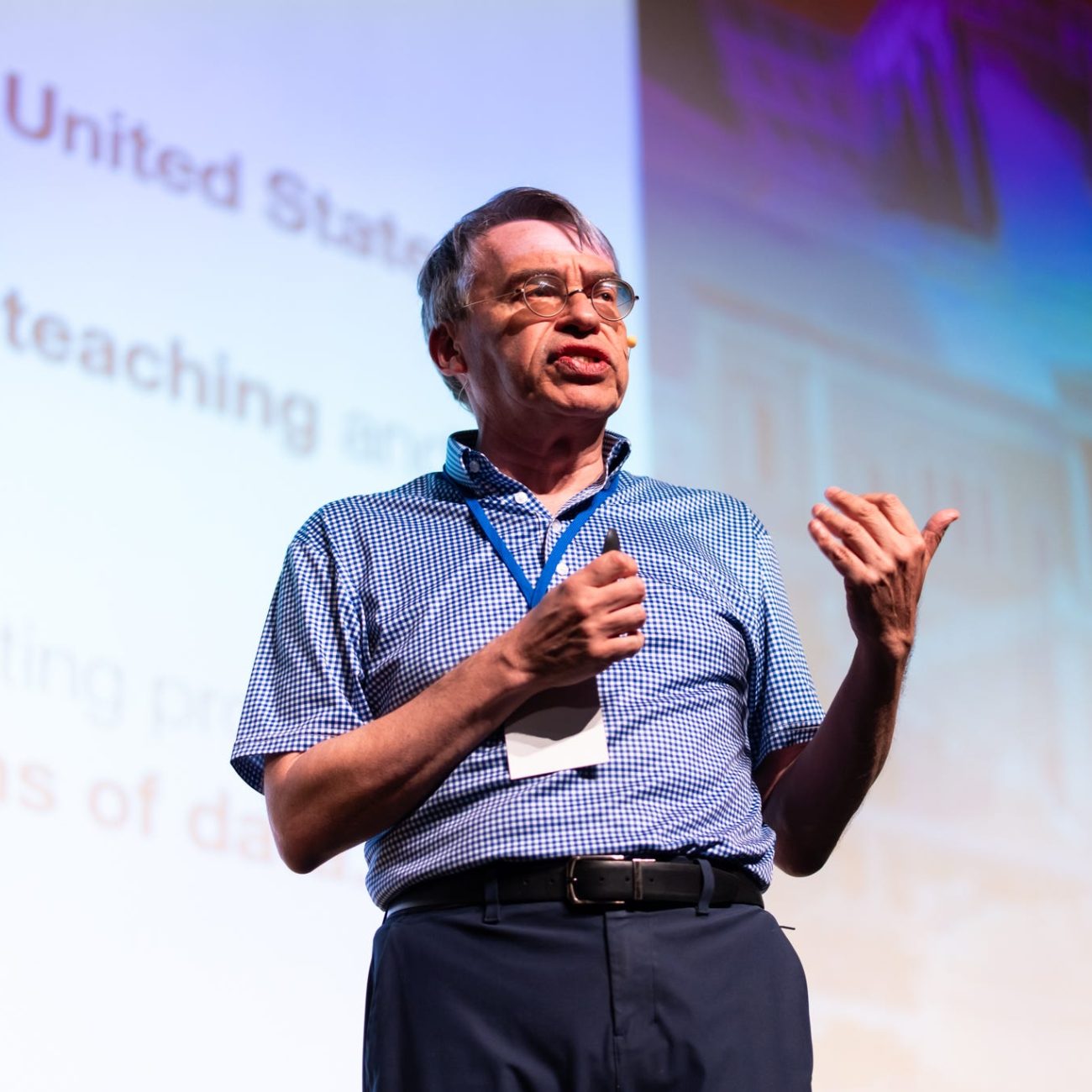
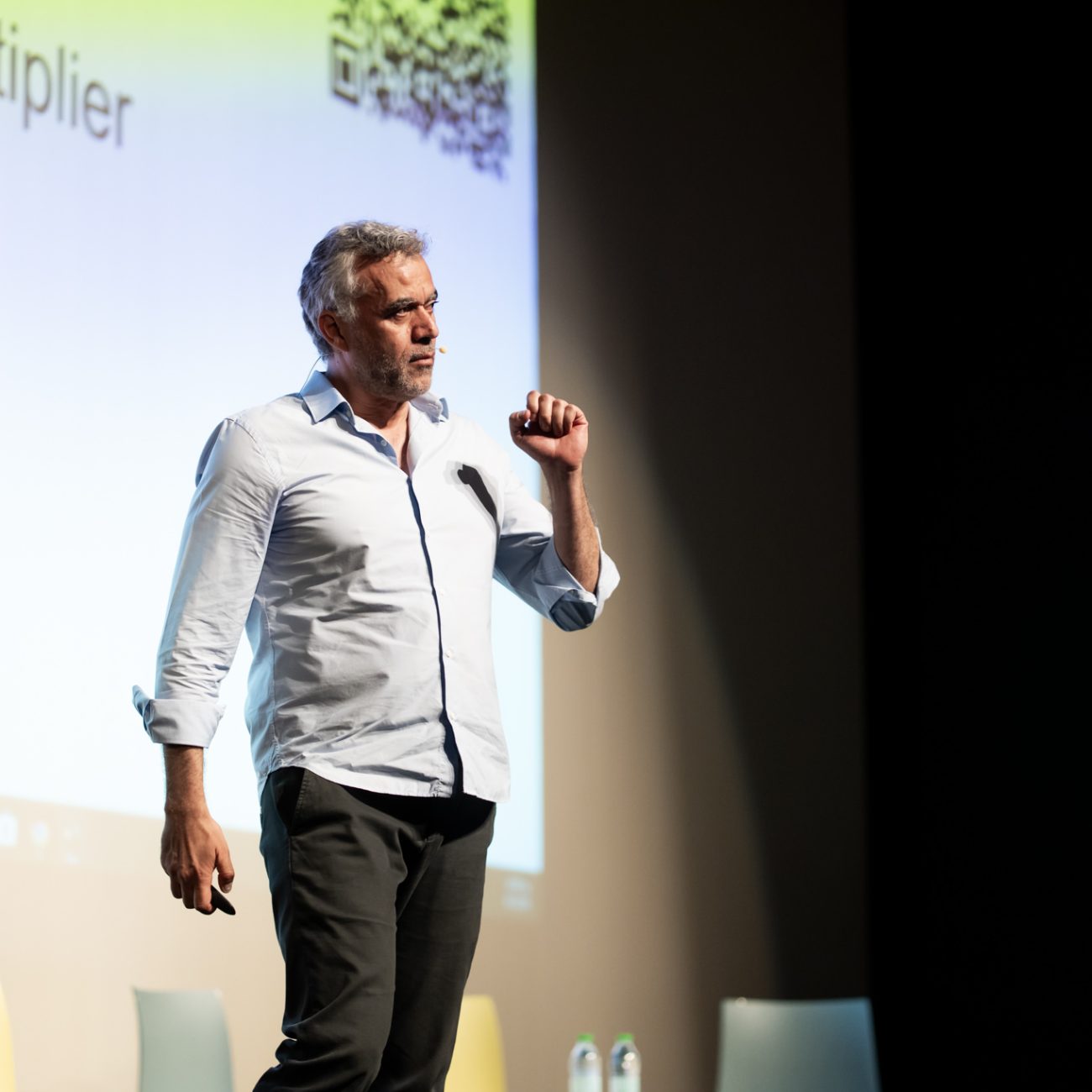
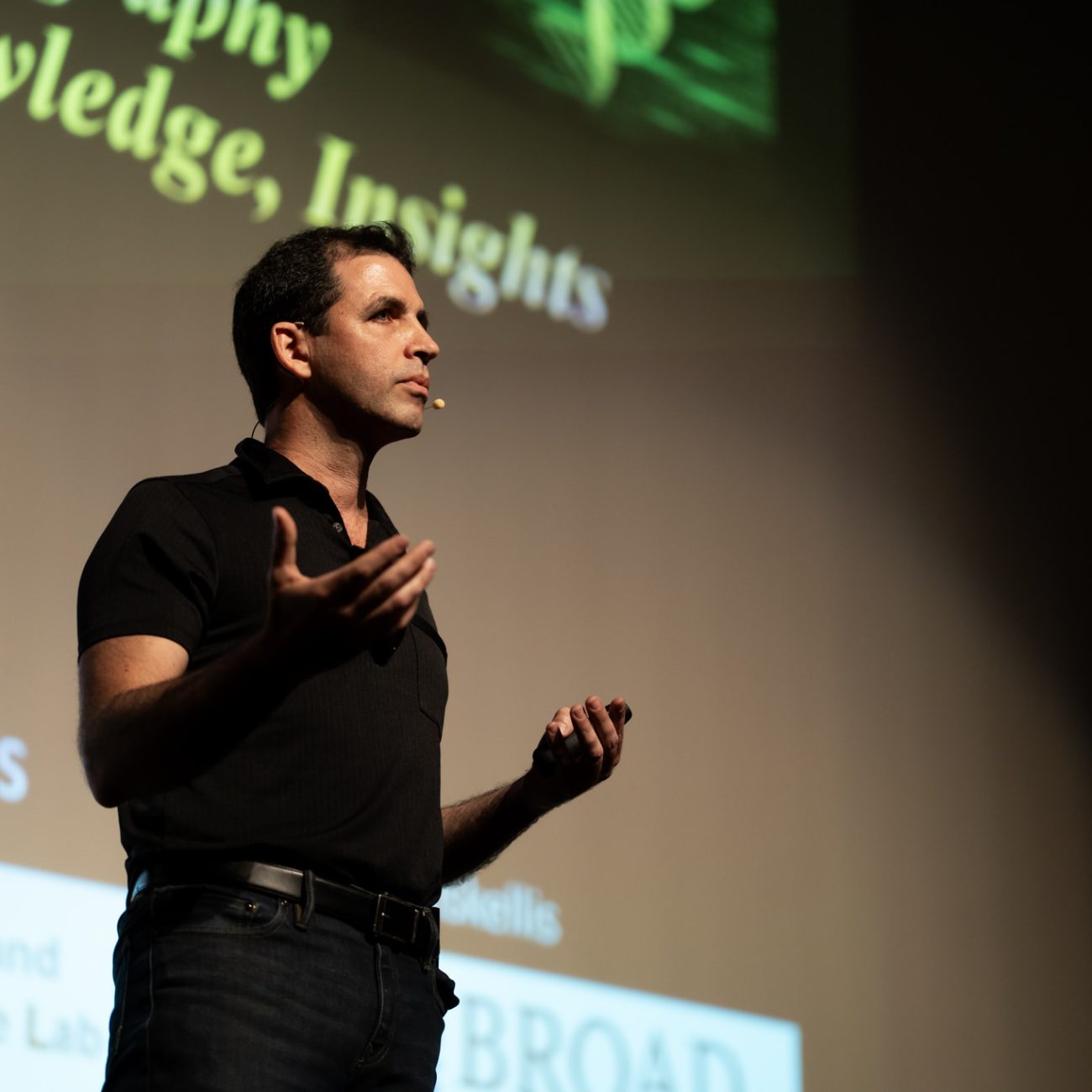
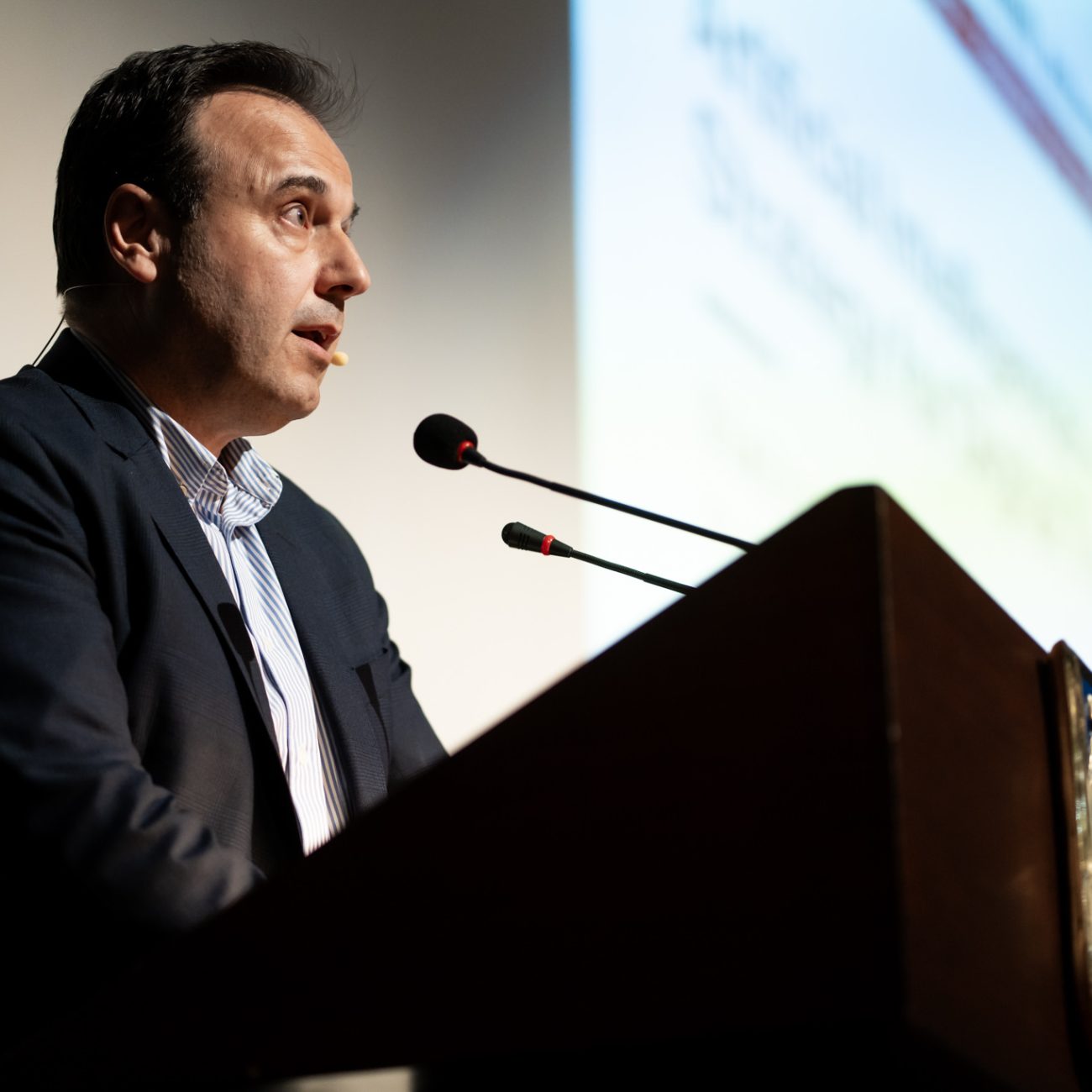
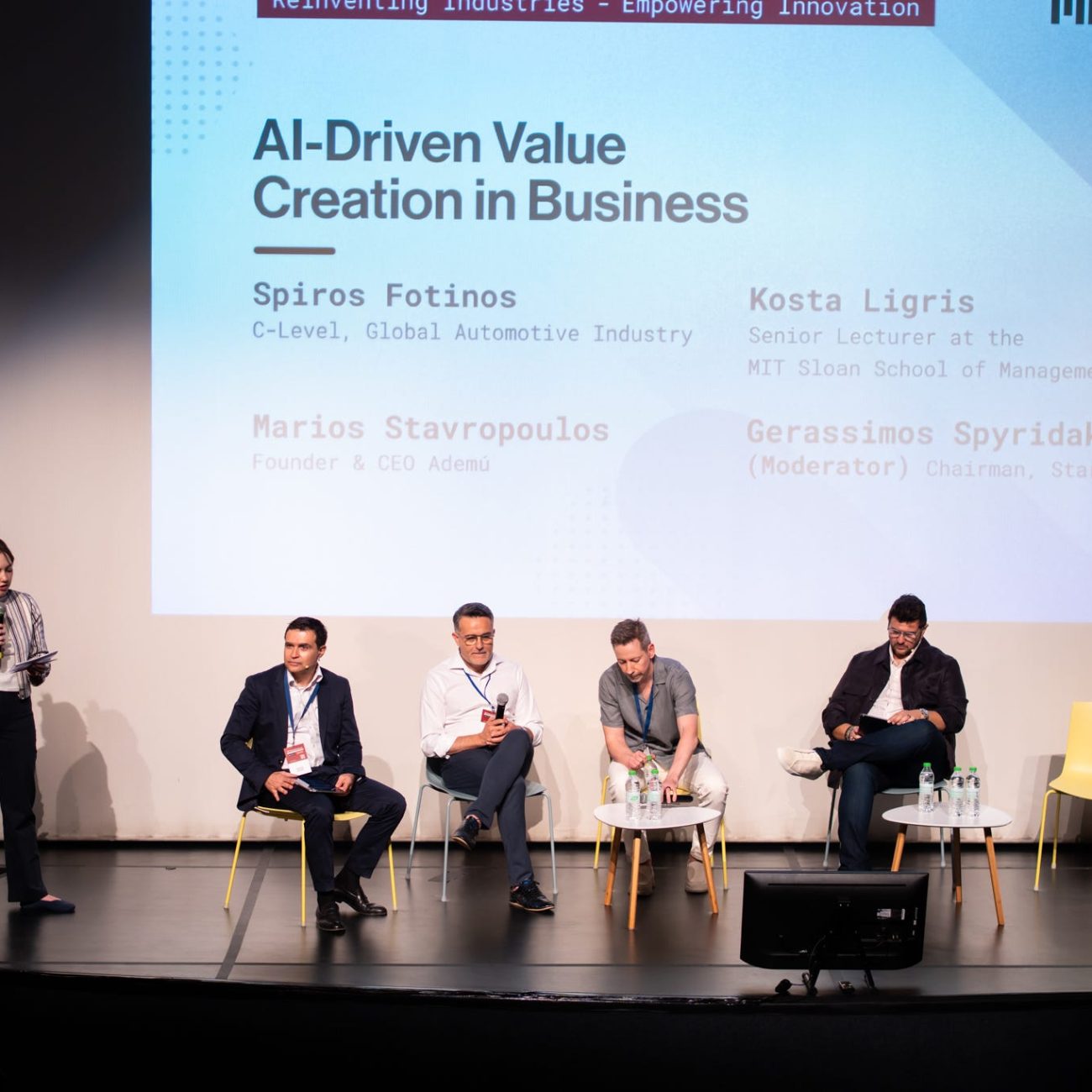
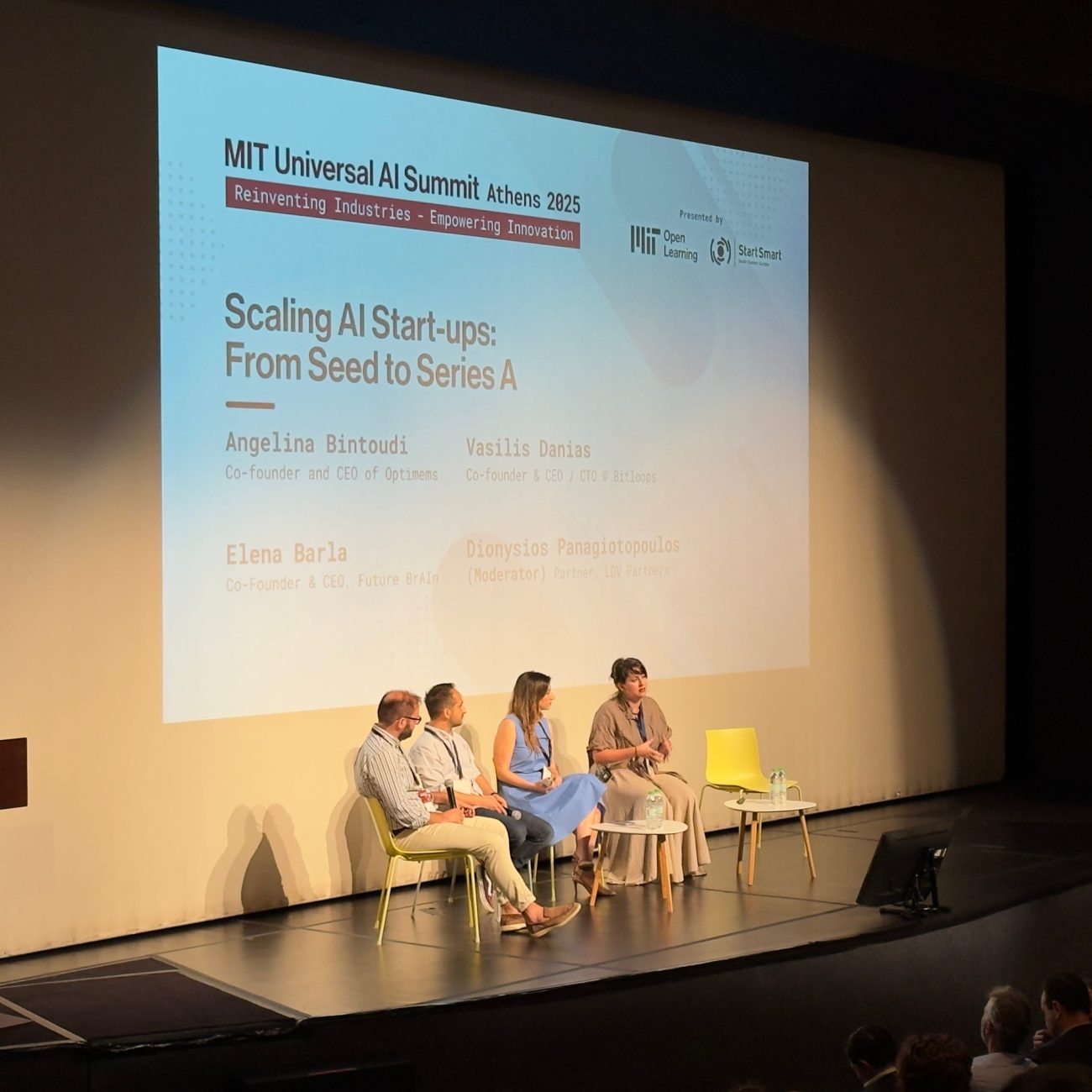
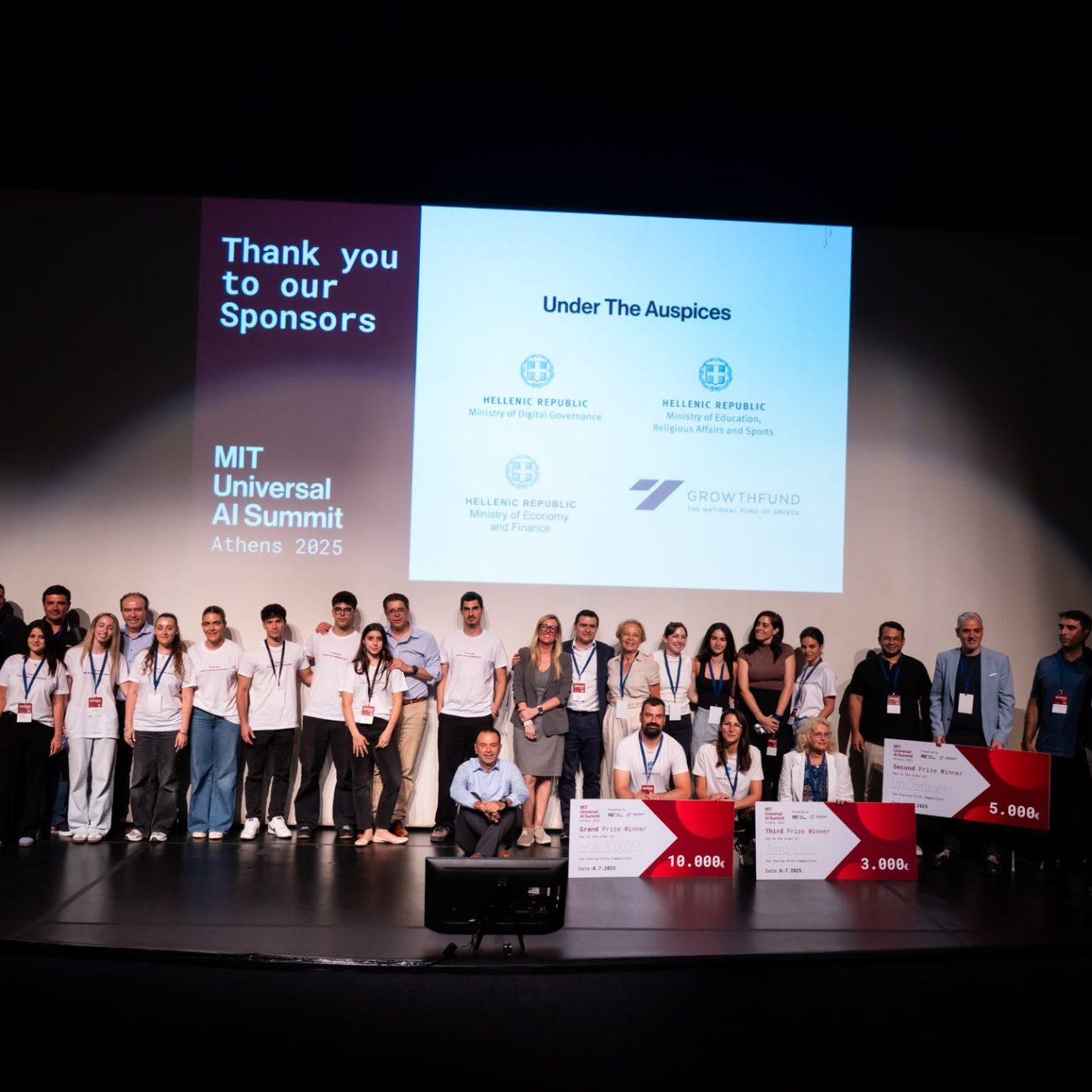
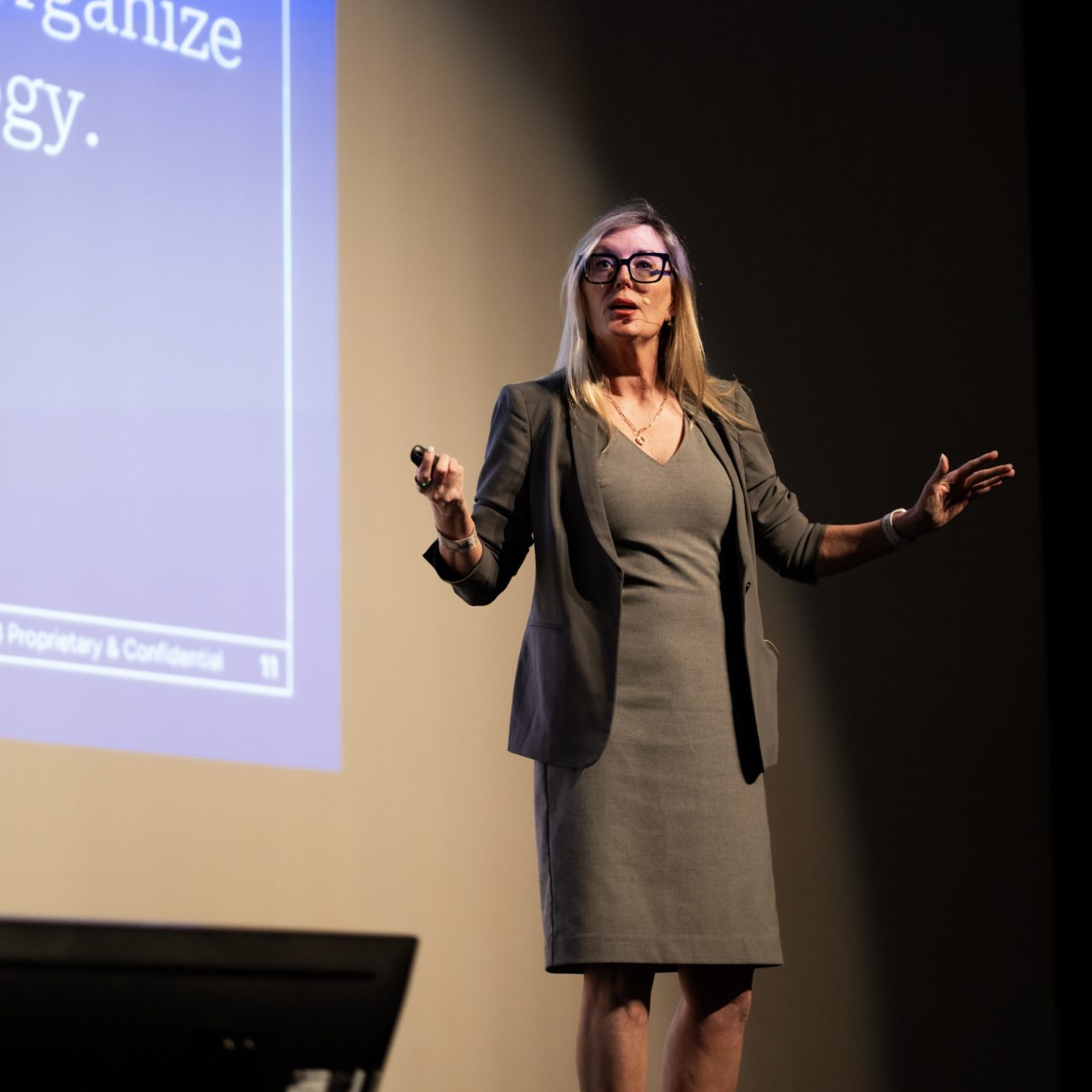
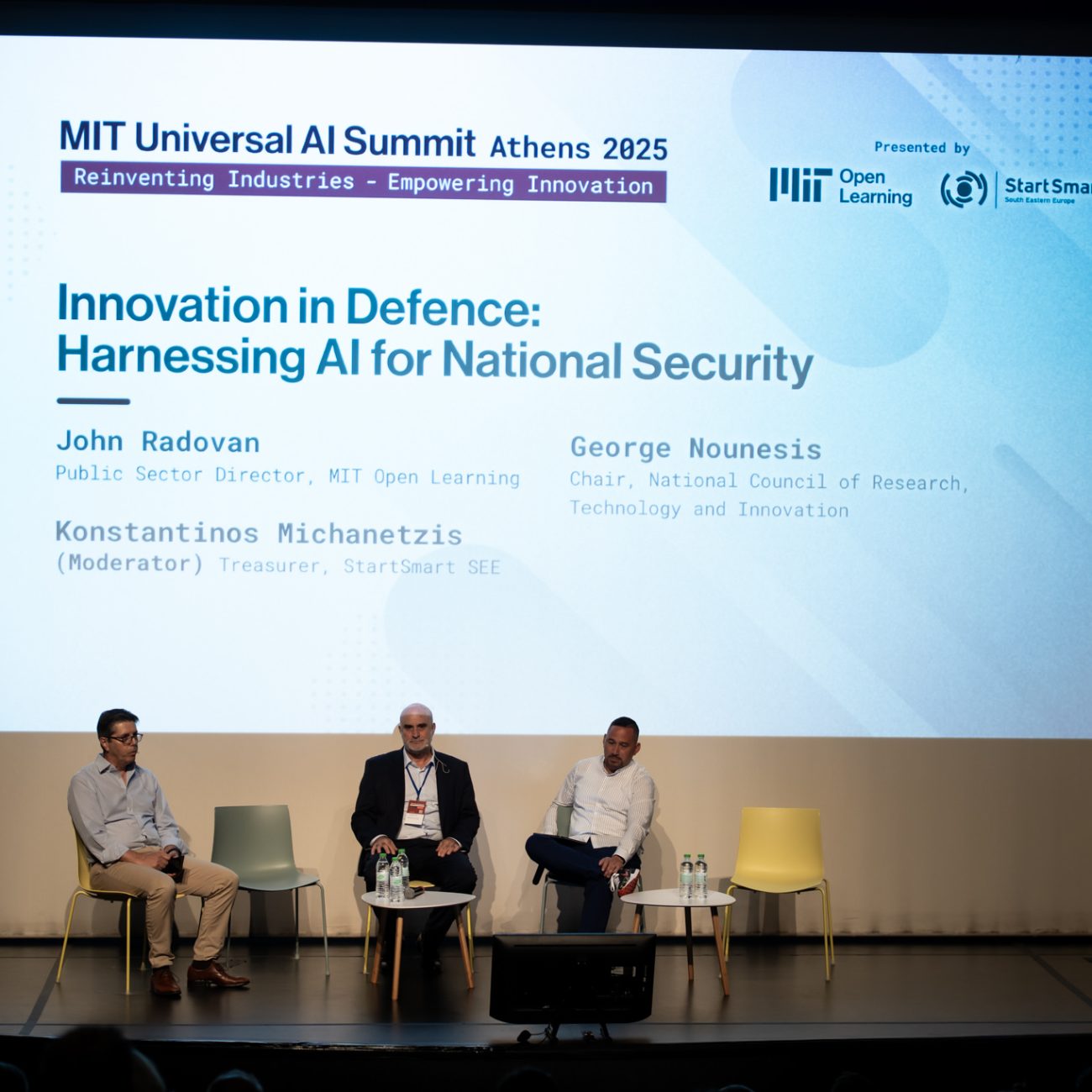
Demo Day: Ten Shots of Tomorrow
As sunset lit the courtyard, the stage flipped to StartSmart SEE 2025 Accelerator Demo Day. Ten startups, coordinated by Panayota Agrapidi, fired through five-minute pitches while investors refreshed Calendly links on their phones:
- AGAR – open-source robotics for precision farming
- AimaLabs (2nd Runner Up) – AI-powered diagnostics for blood smear analysis
- Baby FM – wearable temperature sensors for infant care
- DataSweep – one-click data cleansing and fusion for SMEs
- Honestli – deepfake-resistant photo provenance and authentication
- Ion Membranes (1st Runner Up) – advanced membranes for clean hydrogen production
- NovelView – real-time 3D modeling for interior renovation planning
- SQB Robotics (Winner) – autonomous kiosks for last-mile retail and services
- Tundra – IoT-enabled sensors for managing smart rentals
- Wildiz – a visual canvas for building and coordinating AI agents
The awards were sponsored by our long-time partner, The People’s Trust.
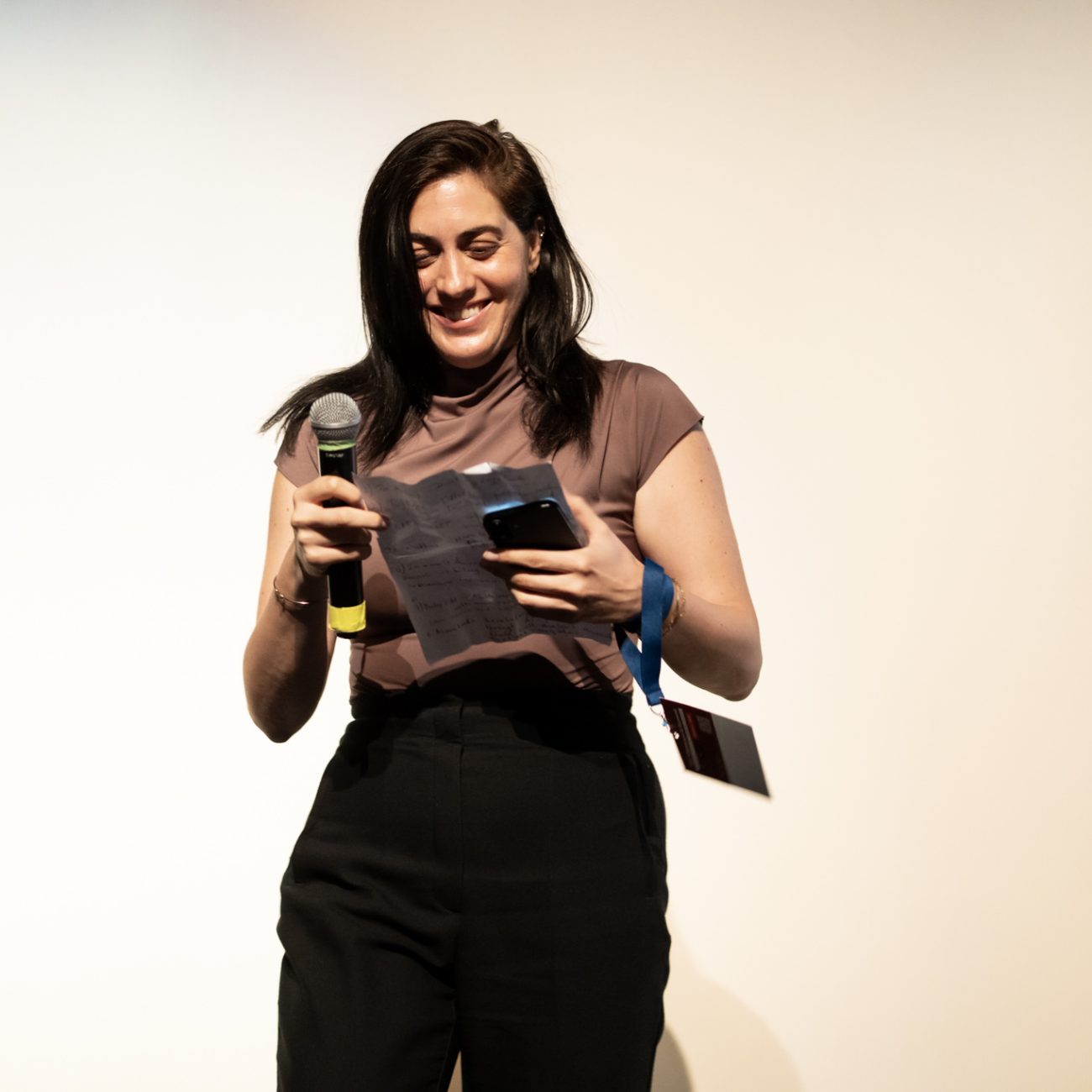
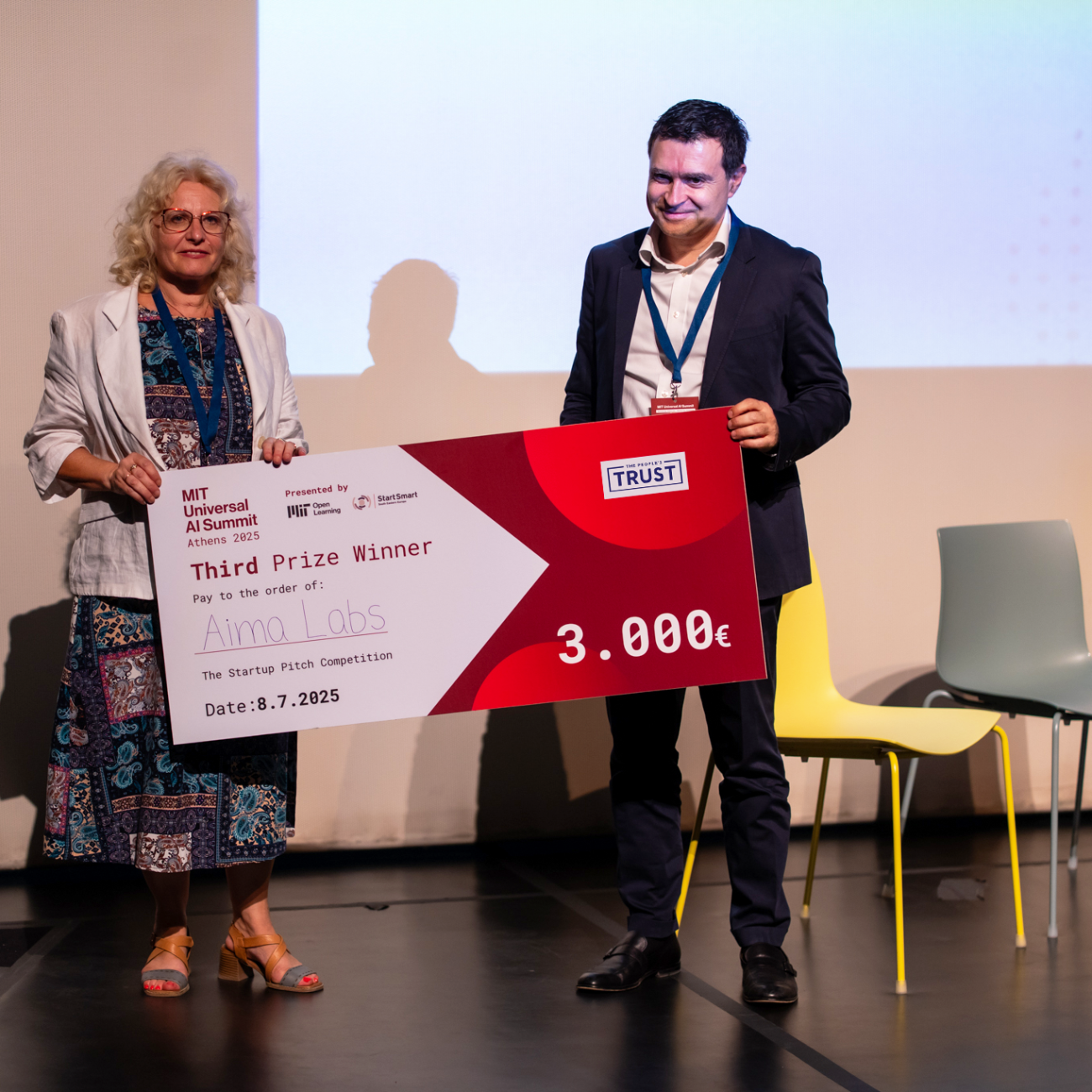
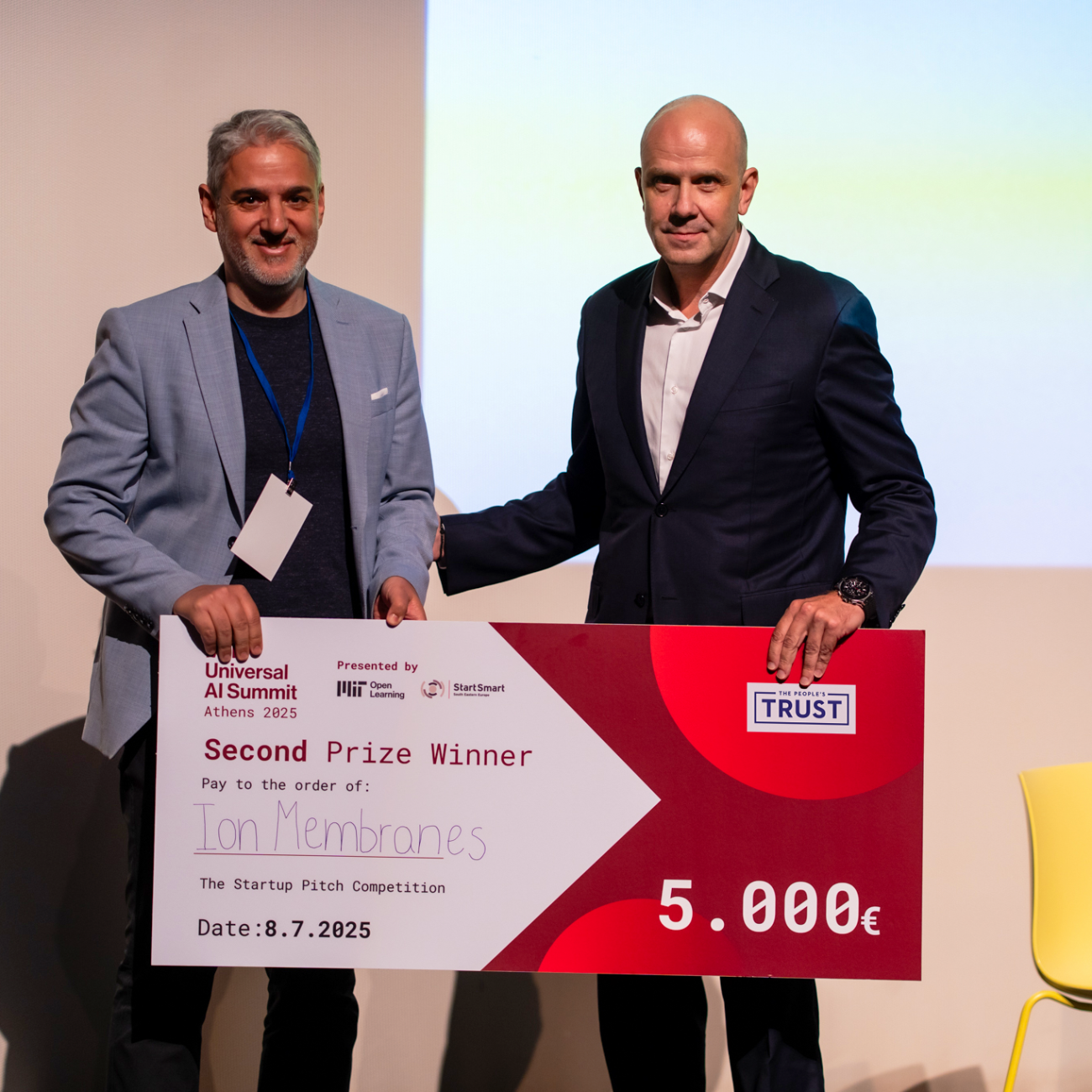
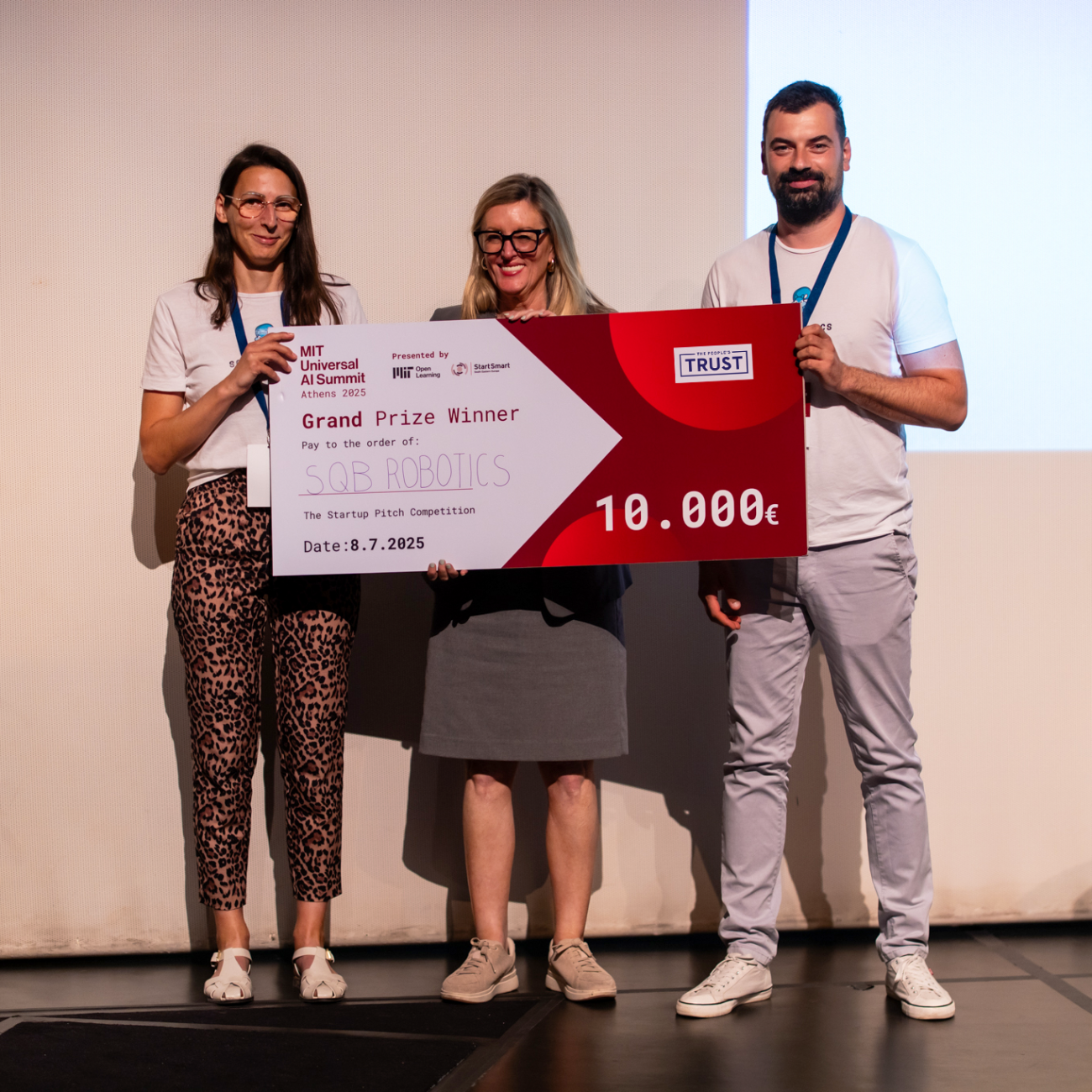
Sponsors and Afterglow
At the MIT Universal AI Summit, our Sponsors didn’t just show up—they stepped in. Rather than simply lending logos, they shared frontline lessons from deploying AI at scale, joined panels, and helped shape the day’s most grounded conversations. These weren’t abstract endorsements; they were real-time exchanges between leaders navigating the same transformation.
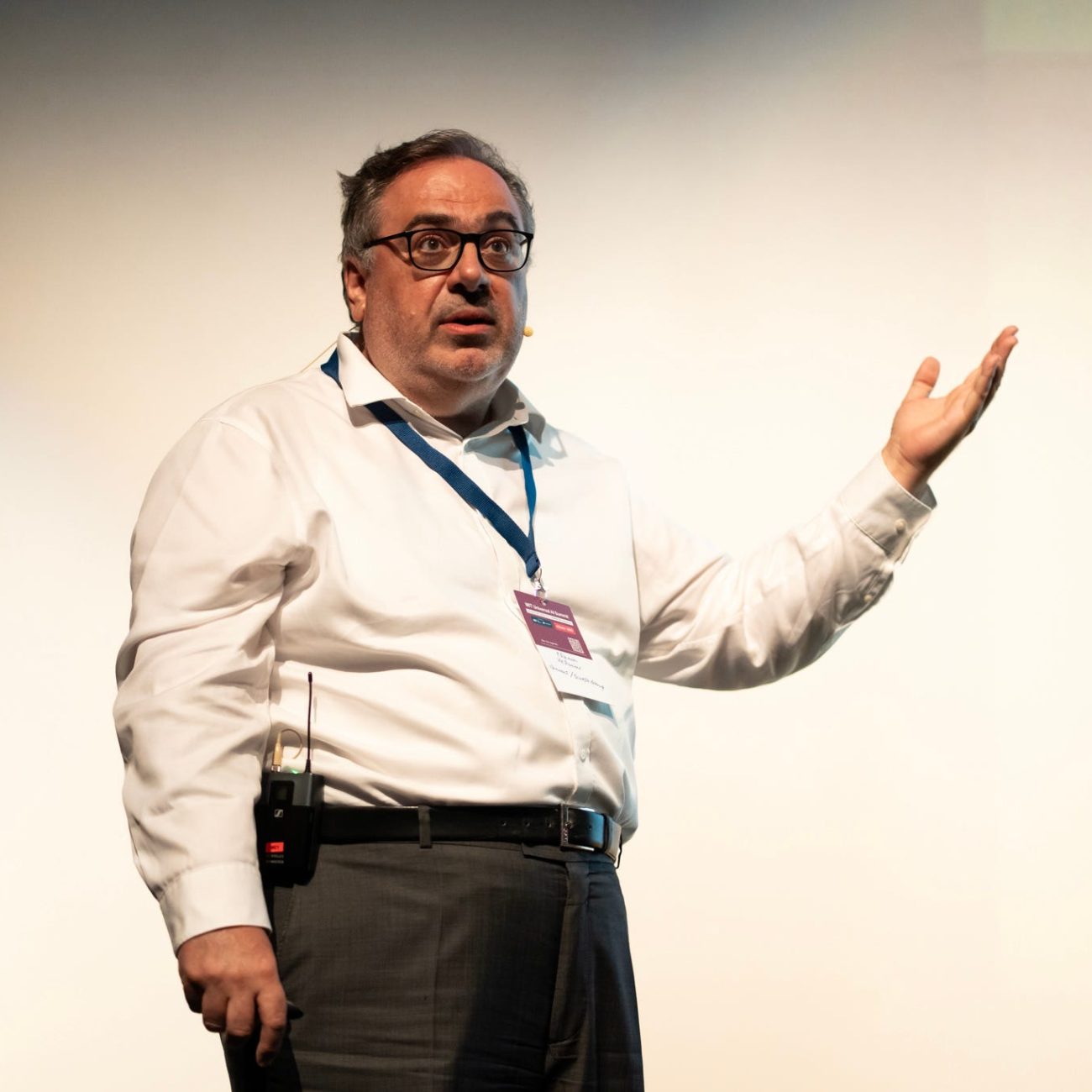
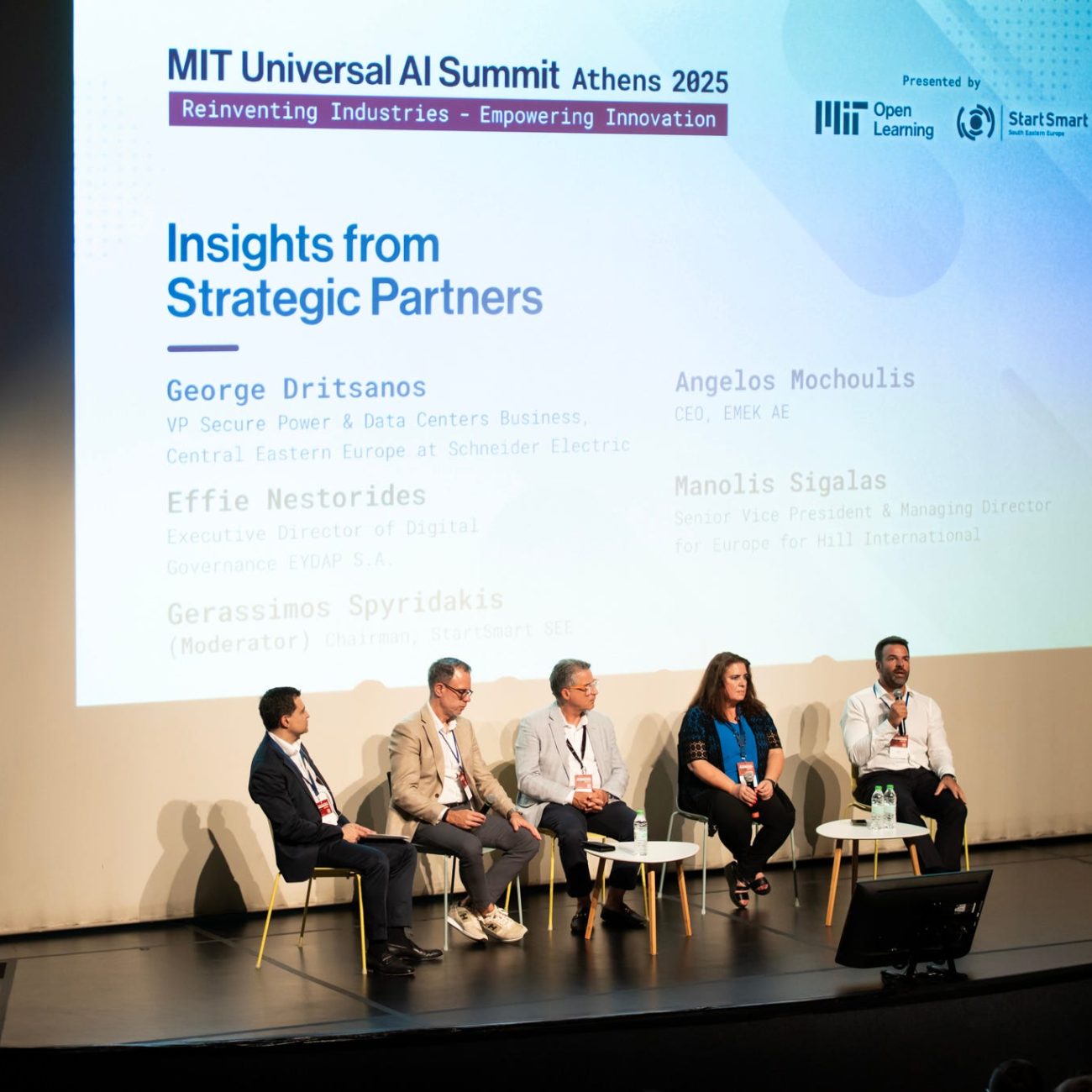
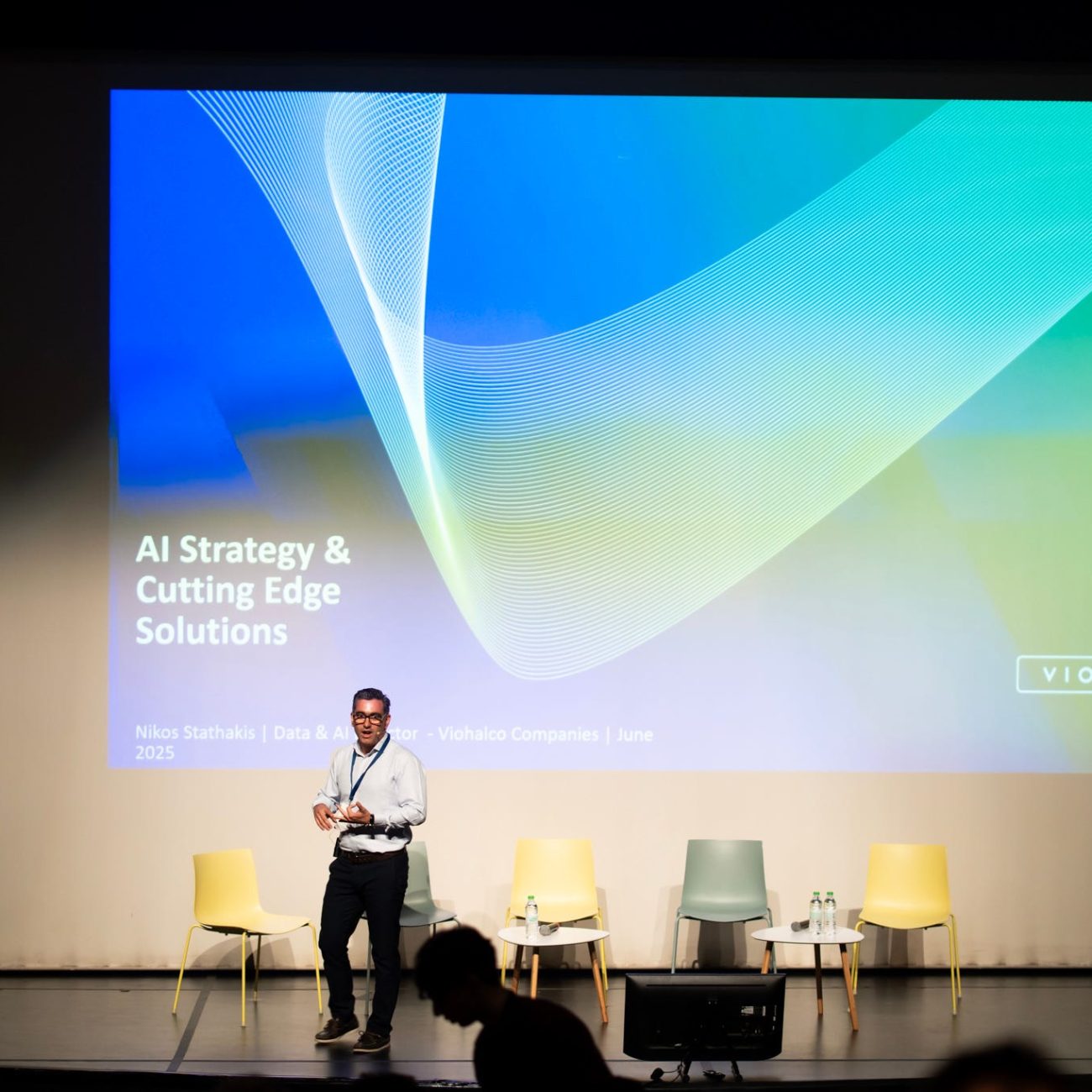
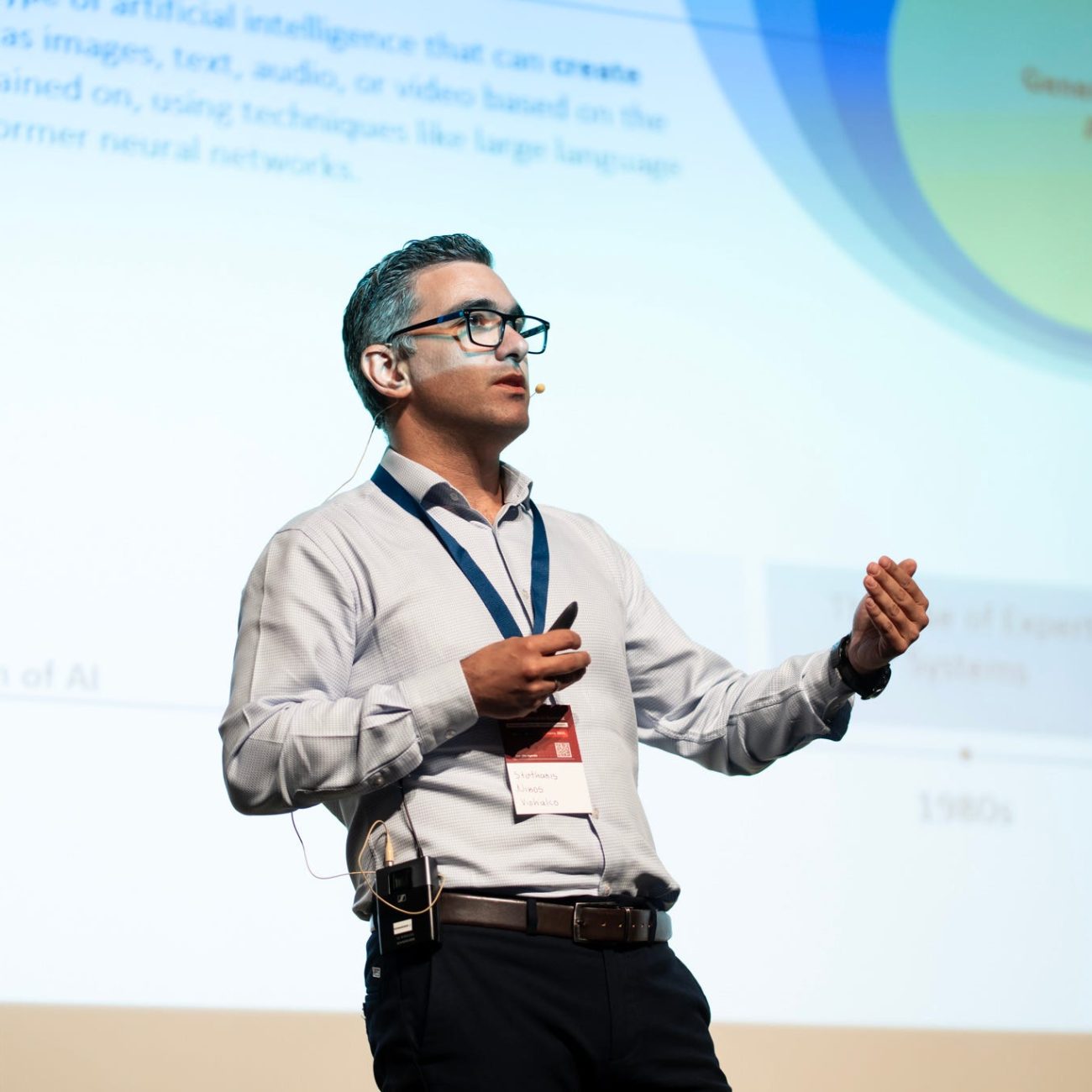
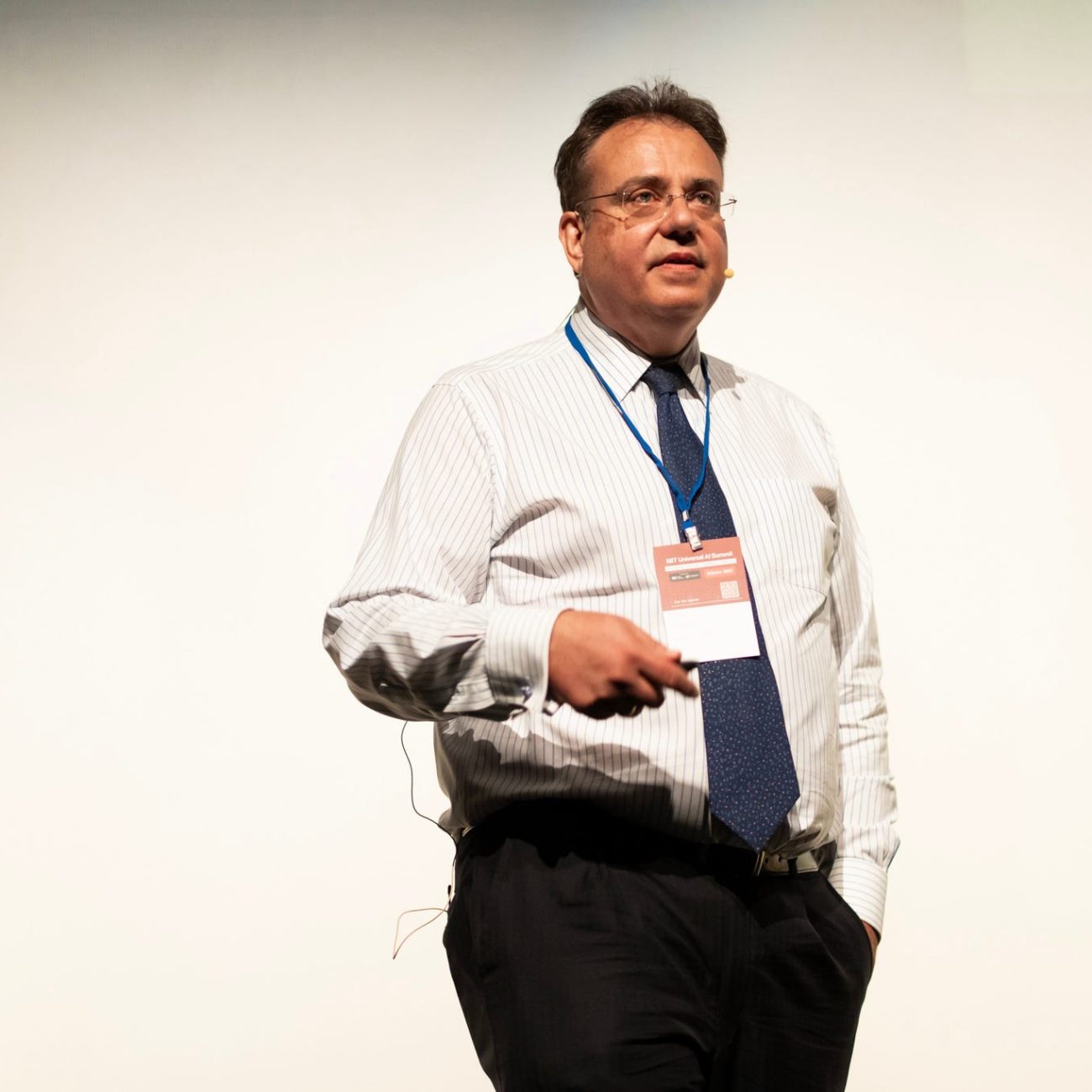
Inside, the discussions were just as intense as the 40°C heat outside—lively, technical, and refreshingly candid. Many participants told us it was the most practical event they’d attended, packed with useful frameworks, live demos, and a level of openness rarely found in high-profile gatherings.
By day’s end, nearly every attendee we spoke with had already booked follow-up calls or had planned new routes for their AI journey. That’s exactly what we built this event for: to collapse the usual distance between learning, policy, and execution into a single, high-impact day.
More to come …
If you joined us in Athens, thank you. Your complimentary Premium access is on the way, including full session recordings, speaker slides, and exclusive post-Summit insights.
If you missed the Summit, you can still catch up. Subscribe to the Premium tier for:
- Full recaps and annotated transcripts
- Slide decks and startup pitch materials
- Ongoing content on emerging AI tech and breakout founders
Stay plugged in. The momentum doesn’t end in Athens.
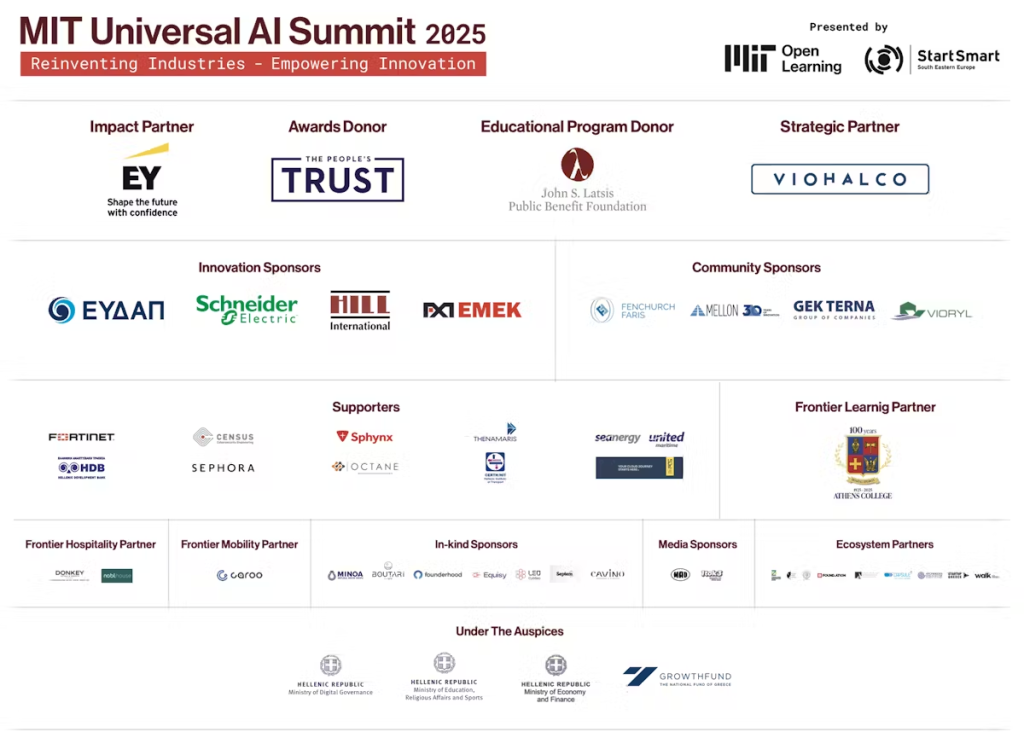
You may also like
Linda Plano: Μονο ετσι μπορει να γινει η Ελλαδα ενα πραγματικο startup nation
Η επιχειρηματικότητα αποτελεί βασικό πυλώνα της ελλην
Ποια ειναι η «σωστη» startup για τους επενδυτες; epixeiro.gr
Ο Eran Wagner General Partner του Gemini Israel Ventures μίλησε στο epixeiro.gr για
Οι 32 Semifinalists του MITEF Greece Startup Competition 2021 – Μερος 3
Οι 32 semifinalists του 2021 – Μερος 3 O διαγωνισμός διοργανώνετα

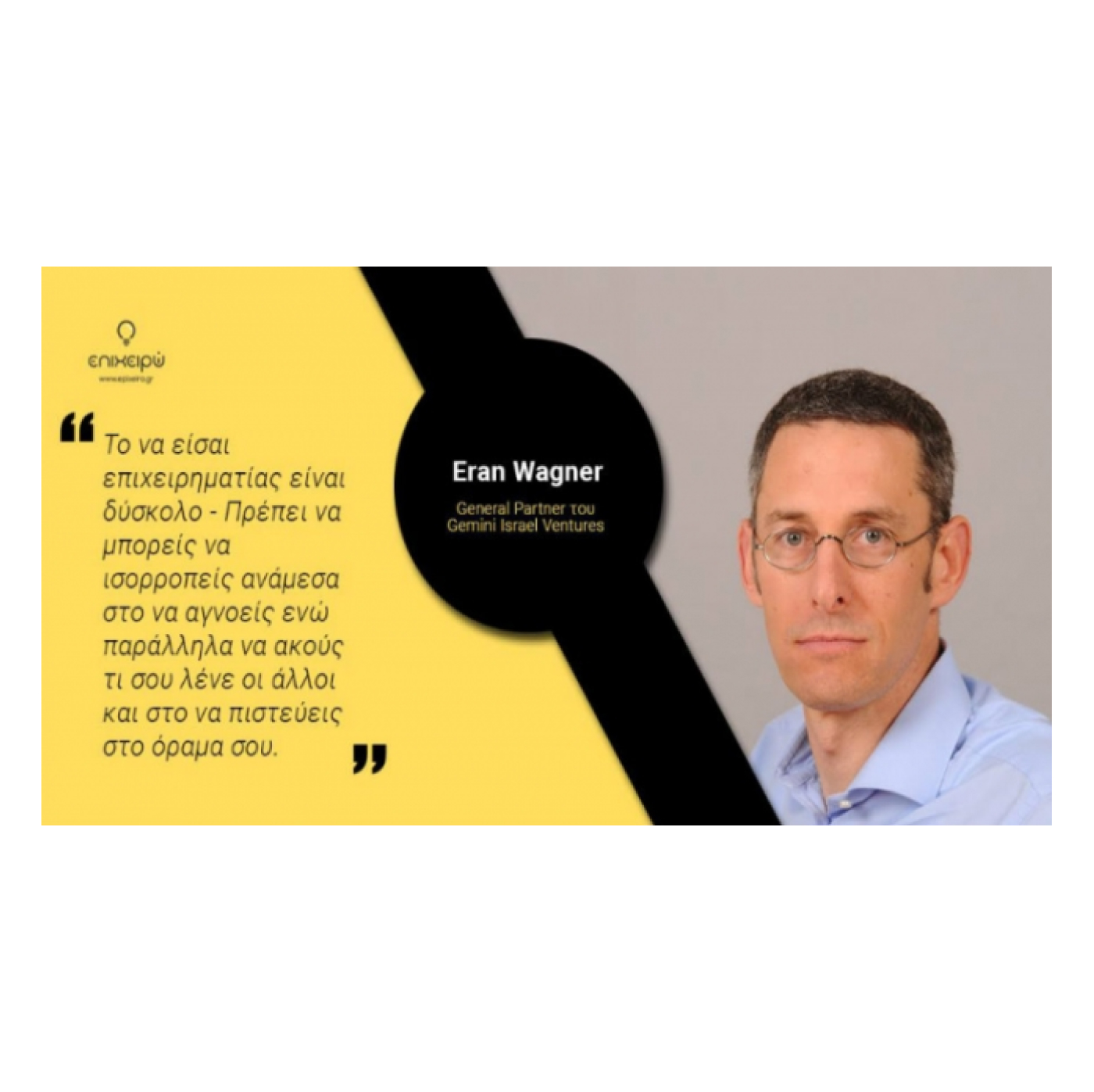
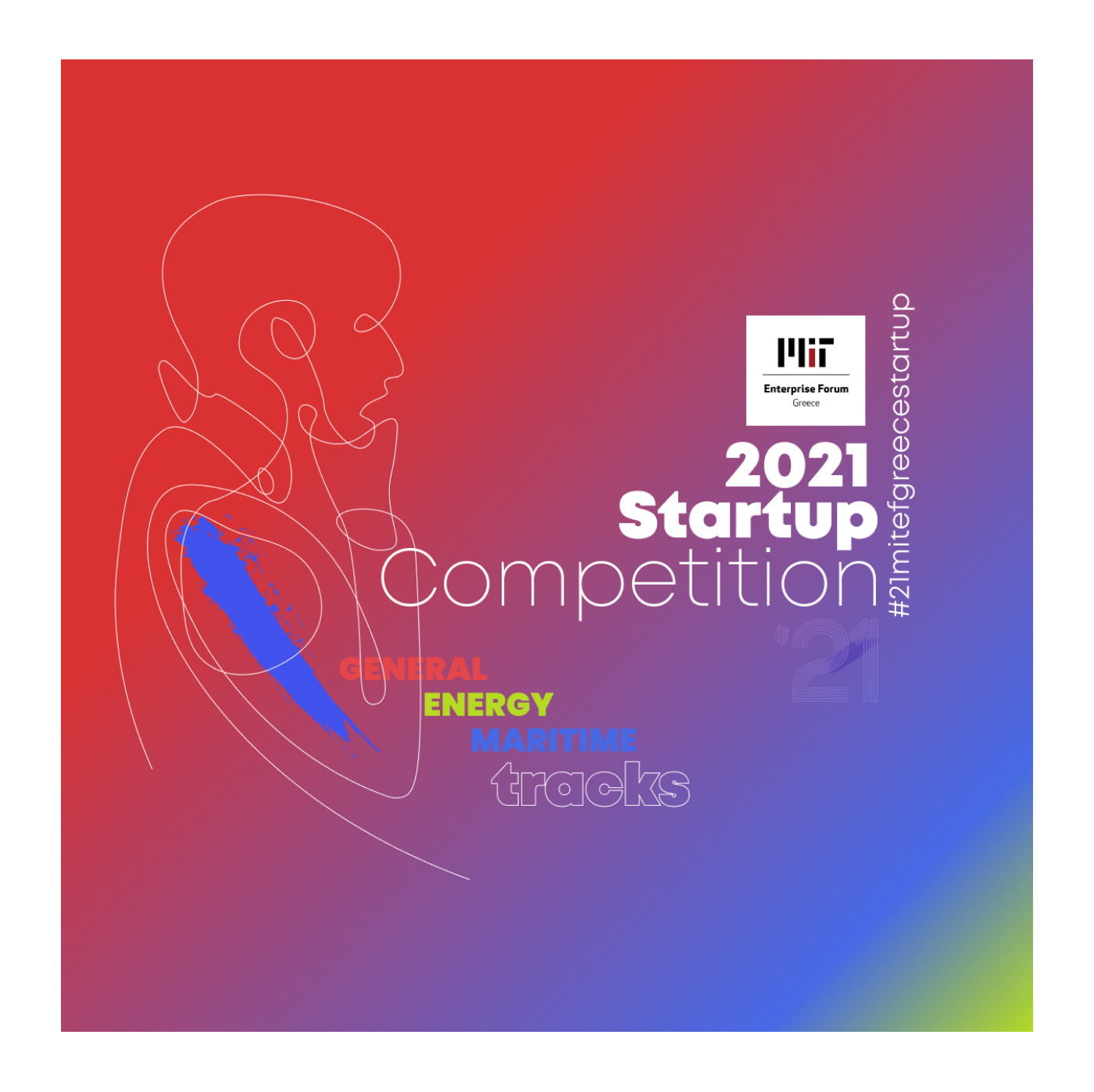
Post a comment